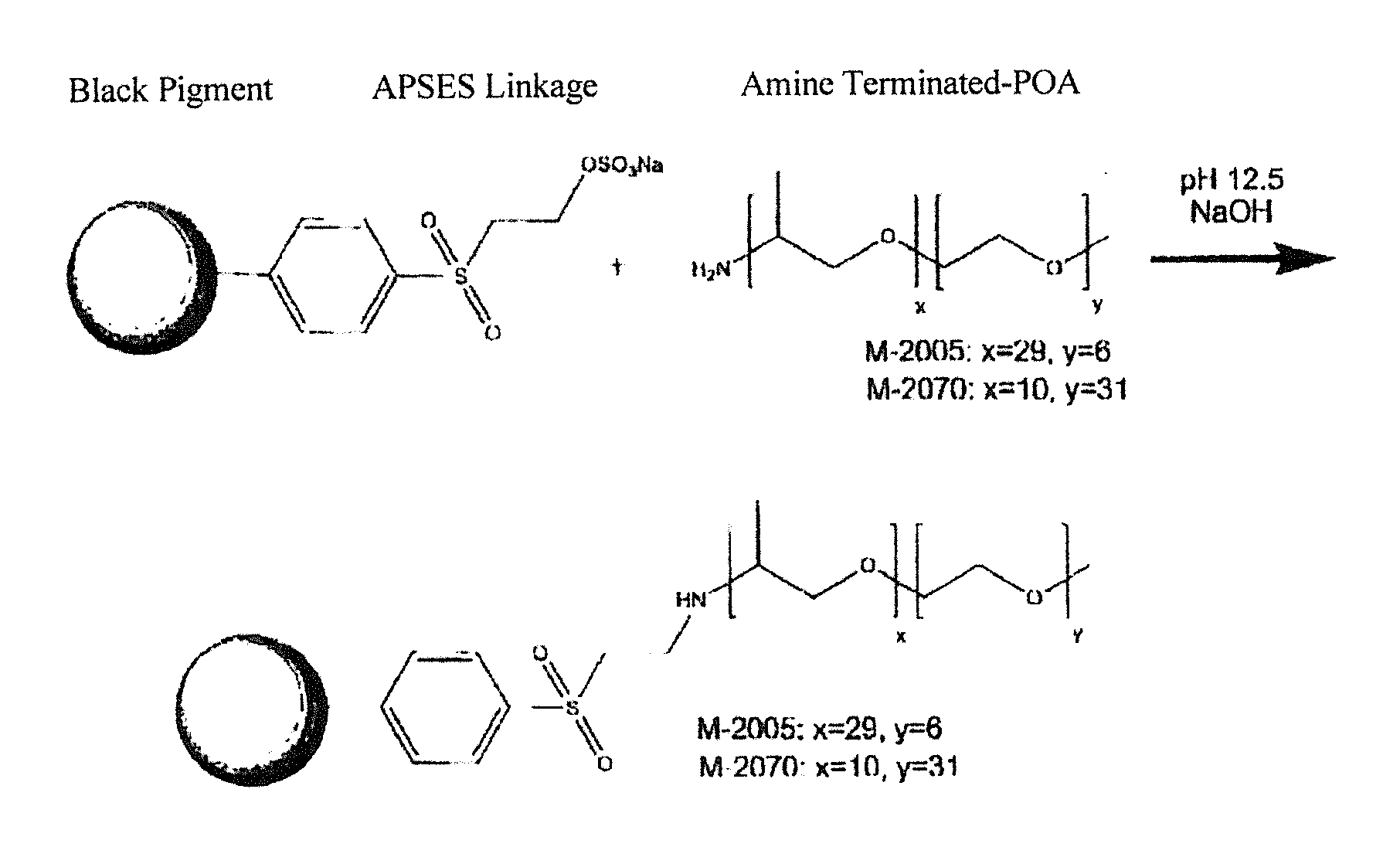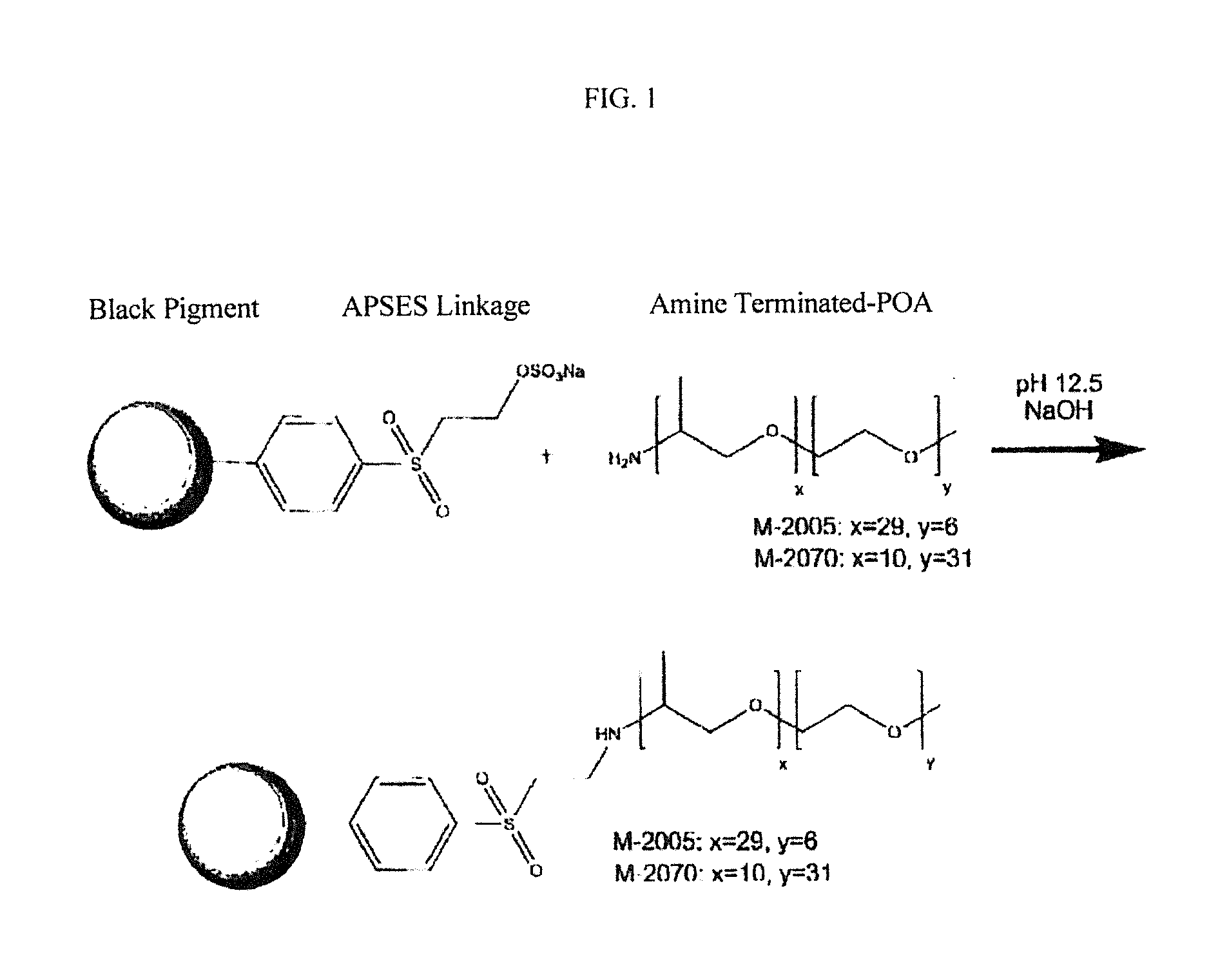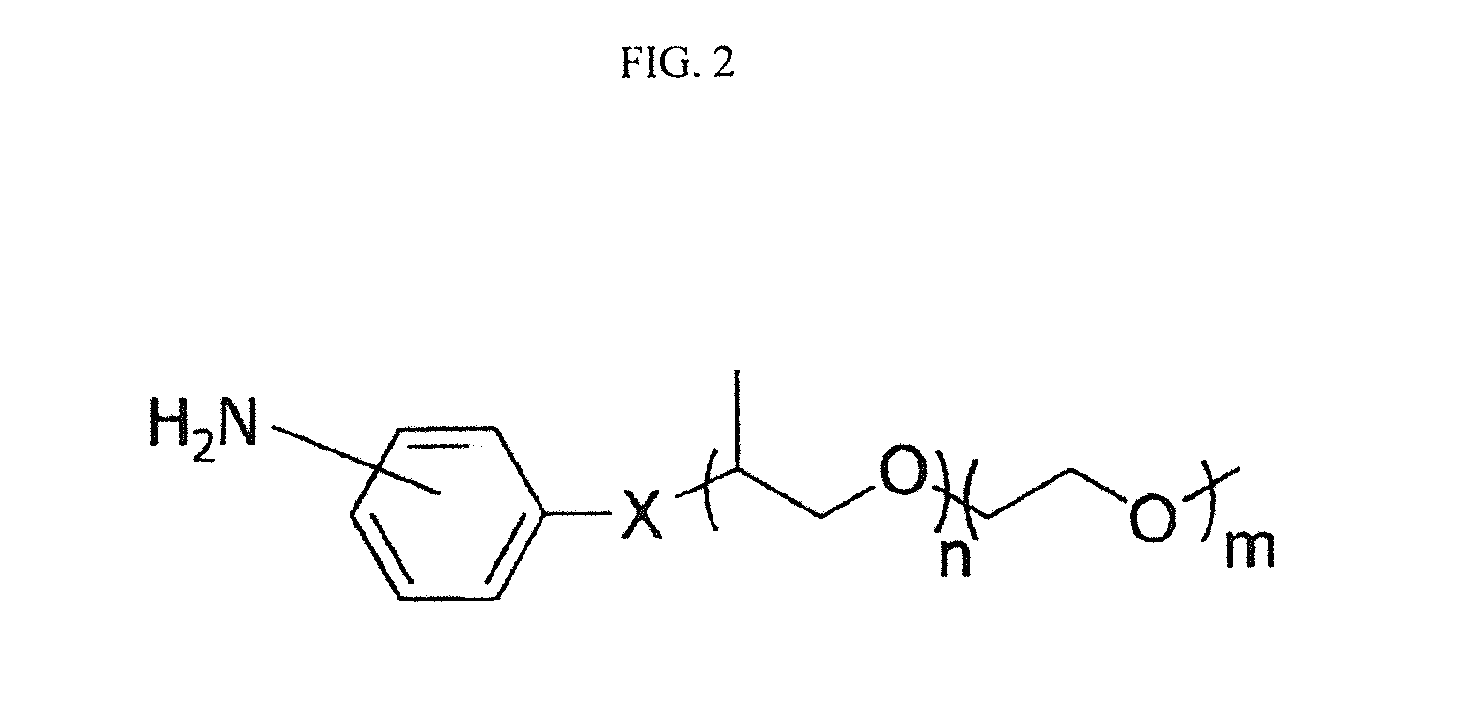Surface modified organic black pigments, surface modified carbon blacks, pigment mixtures using them, and low dielectric black dispersions, coatings, films, black matrices, and debvices containing same
a technology of organic black pigments and carbon blacks, applied in the field of surface modified organic black pigments, surface modified carbon blacks, pigment mixtures using them, and low dielectric black dispersions, can solve the problems of reducing aperture or effective pixel size, leaking light, and reducing brightness, so as to reduce or eliminate requirements for dispersing aids.
- Summary
- Abstract
- Description
- Claims
- Application Information
AI Technical Summary
Benefits of technology
Problems solved by technology
Method used
Image
Examples
example 1
[0109]The surface modification of perylene blacks by diazonium chemistry and polyoxyalkylene polymer attachment to improve the interaction between perylene black surfaces and dispersants was investigated.
[0110]A 2-amino-4,5-dicyano-1H-imidazole (AIDN) treated perylene black pigment was initially prepared. The reactants and reaction scheme for this preparation are generally shown in FIG. 4. The perylene black was Pigment Black 32 (PALIOGEN® Black L0086, BASF Corporation). Pigment Black 32 (50 g) and deionized (DI) water (450 g) were first milled with glass beads (2 mm) to wet the pigment. Then, the glass beads were filtered and the aqueous dispersion was transferred into a 2 L stainless steel beaker equipped with a homogenizer and an overnight mixer. The mixture was further stirred for 2 hours with the homogenizer and overhead mixer to disperse the pigment. In a separate 250 mL 3-neck round bottom flask equipped with a magnetic stir bar, was added AIDN (6.65 g), DI water (128 mL) and...
example 2
[0115]A polyoxyalkylene polymer modified APSES-treated carbon black in a propylene glycol methyl ether acetate (PGMEA) dispersion was prepared as follows. APSES treated carbon black was obtained through a diazonium reaction. In a typical procedure (for 1 mmol APSES / g pigment treatment), carbon black (100 g) was dispersed in DI water (900 g) and was vigorously dispersed with an overhead mixer and a rotor stator. After the pigment was well-dispersed in water, 4-aminophenyl-(2-sulfatoethyl)-sulfone (APSES) (28.1 g, 0.1 mol) was added to the dispersion. The temperature was brought up to 60° C. and sodium nitrite (6.9 g, 0.1 mol) in water (56 g) was added to the dispersion dropwise. After 2 hr of reaction at 60° C., the reaction was cooled to room temperature. The pH of the reaction mixture was about 6 after reaction. The mixture was purified by diafiltration.
[0116]Attachment of JEFFAMINE® M2070 directly onto the APSES treated carbon black was accomplished through Michael addition under ...
example 3
[0118]An example of directly attaching aniline-terminated PEO / PPO copolymer to a carbon black through diazonium chemistry to provide a modified carbon black useful for black matrixes is described. In a procedure (for 1 mmol polymer / g pigment treatment), carbon black (100 g) is dispersed in DI water (900 g) and is vigorously dispersed with an overhead mixed and a rotor stator. After the pigment is well-dispersed in water, an aniline-terminated polyoxyalkylene having a structure shown in FIG. 2 (200 g, 0.1 mol) and 2.5M sulfuric acid (20 mL, 0.05 mol) were added. The temperature is brought up to 60° C. and sodium nitrite (6.9 g, 0.1 mol) in water (56 g) is added to the dispersion dropwise. After 2 hr of reaction at 60° C., the reaction is cooled to room temperature. The mixture is purified by diafiltration before it is dried at 70° C. for 16 hours.
PUM
| Property | Measurement | Unit |
|---|---|---|
| Thickness | aaaaa | aaaaa |
| Frequency | aaaaa | aaaaa |
| Surface resistivity | aaaaa | aaaaa |
Abstract
Description
Claims
Application Information
 Login to View More
Login to View More - R&D
- Intellectual Property
- Life Sciences
- Materials
- Tech Scout
- Unparalleled Data Quality
- Higher Quality Content
- 60% Fewer Hallucinations
Browse by: Latest US Patents, China's latest patents, Technical Efficacy Thesaurus, Application Domain, Technology Topic, Popular Technical Reports.
© 2025 PatSnap. All rights reserved.Legal|Privacy policy|Modern Slavery Act Transparency Statement|Sitemap|About US| Contact US: help@patsnap.com



